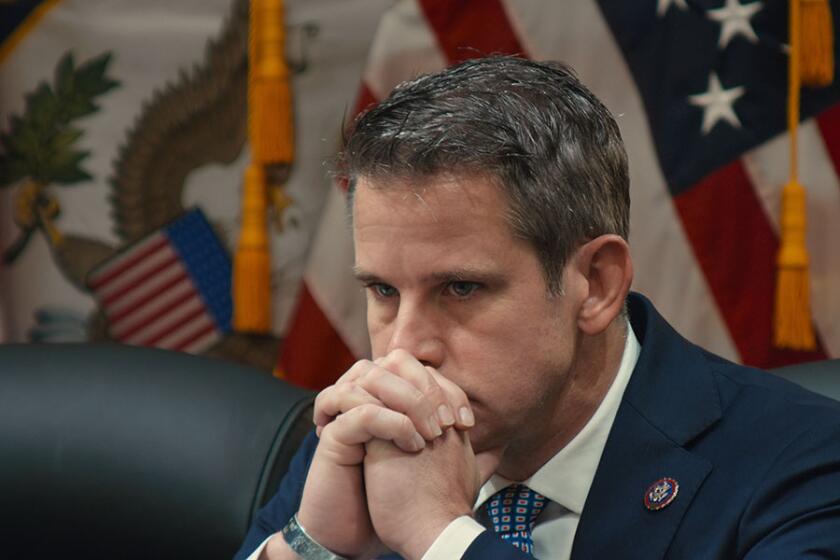‘ALIENS’ IDEOLOGY
Webber’s commentary on “Aliens” is the kind of thoughtful response that the movie deserves.
Sigourney Weaver’s Ripley is a woman for the ‘80s: strong, self-reliant (“I can handle myself”), courageous, resourceful--she fights her way through cosmic terrors and heroically attains . . . motherhood.
This might seem to be an old stereotype, the woman as no more than nurturer. Obviously, Ripley would never settle for that. The stereotype at issue in this case is of the self-involved, self-sufficient career person to whom other people are basically meaningless.
Ripley has solid credentials in looking out for No. 1. The Darwinian survivor of “Alien,” she goes beyond mere survival and beyond the narcissism of the me-generation ideology of self-fulfillment through work and adds the dimension--the human dimension and not just the feminine--of caring and nurturing to her other accomplishments.
This occurs almost as a revelation in the film even as Baby Boomer women in their ‘30s, having spent the last 20 years following their own destinies, realize that childbearing is part of human life and that the dependency of children is not necessarily a form of slavery imposed by external patriarchal authority.
In these ways the movie speaks to serious contemporary issues and the circumstances of modern lives; but there is more.
In its mythic/horror/science-fiction form, the movie has a timeless psychological dimension. Fear of commitment, involvement and the urges of biology is at the same time a fear of loss of control, of consciousness and of self.
For Jung these meant a fear of being overwhelmed by the unconscious; and in “Aliens” the dark side of the unconscious is strongly symbolized by the aliens, their labyrinthine den and their queen/mother.
Ripley is originally driven by her own scary dreams--nightmares of unnatural intercourse, gestation and birth--and discovers in Newt someone with the same problems. When both come to be motivated by understanding, affection and trust for each other, they both overcome their fears and can accept the natural loss of control involved by their mutual dependence.
This is a splendid theme, and a profound one.
KELLEY L. ROSS
Van Nuys
More to Read
Only good movies
Get the Indie Focus newsletter, Mark Olsen's weekly guide to the world of cinema.
You may occasionally receive promotional content from the Los Angeles Times.










